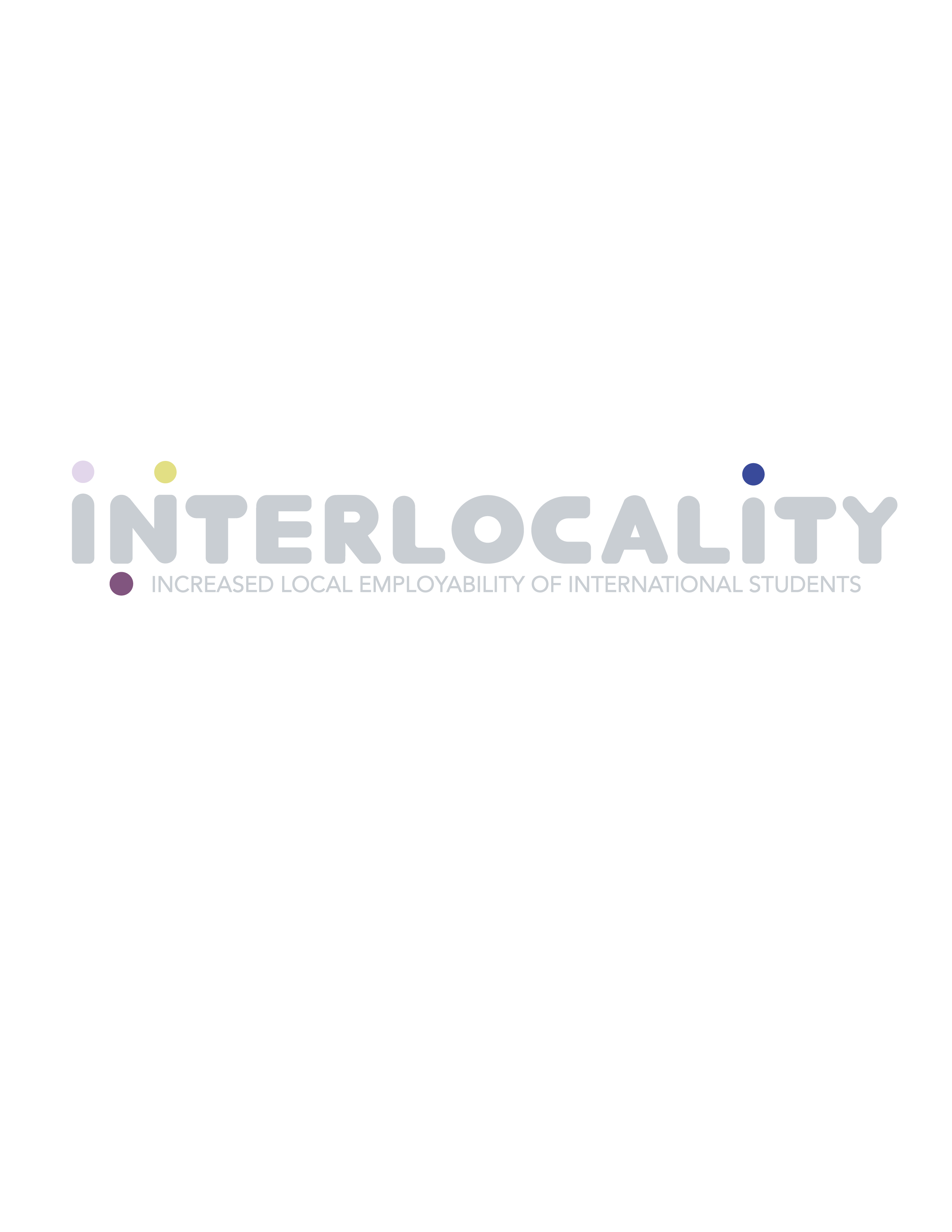The project “INTERLOCALITY – increased local employability of international degree students” has finally begun. The project, financed by the Erasmus+ program of the European Union under the Ka2 Cooperation Partnership – Higher Education, aims at increasing local employability among international and degree students within the fields of engineering and of business administration.
INTERLOCALITY is essentially targeted at individuals that once removed from their original environments, i.e., their home countries, become exposed to new challenges such as fewer opportunities or simply a tougher environment compared to what a local student might experience. While most of the international students are highly ambitious individuals who choose to challenge themselves by leaving their home countries and comfort zones in the quest for better academic opportunities and a better future, they must face a series of “soft” barriers when entering and living in the host country, such as cultural differences, economic barriers and in some cases even discrimination. Furthermore, the COVID-19 pandemic has significantly affected their employability situation, by making them more and more vulnerable and less and less included into the local context where they are studying. Although these are crucial issues for HEIs’ student attraction and retention, it is not within the power of the HEIs to secure employment for their students. In this they rely completely on companies and organisations to hire students. There is a widely acknowledged gap between HE studies and employment and INTERLOCALITY aims to bridge that gap by supporting not just the international degree students, but also staff at HEIs and, companies and 3rd sector staff, by taking upon a quadruple helix approach involving all four main actors that influence the local employability of international degree students, namely international degree students themselves, HEI staff, local companies and the surrounding society.
INTERLOCALITY will address these challenges that the consortium partners, including four HEI’s and a job- and international mobility agency, have tried to solve by testing out different methods and initiatives within their own institutions and local environments. The possibility for the University College of Northern Denmark (UNC – Denmark), FH Muenster (FH Muenster University of Applied Science – Germany), ARCADA University of Applied Sciences (Finland), FONTYS University of Applied Sciences (Netherlands) and SEND (Italy) to join forces around a common approach will allow them to develop news tools and practices that can address these challenges at the root of the topic in their countries and local contexts.
The consortium will firstly map and analyse the needs among students and employers in local companies, before developing a prototype for an International Alumni Monitoring Tool (IAMT). The IAMT will track and collect objective general data on the mobility and career steps of the international student, and subjective data on their perception of their participation on the labour market. Then students will go through an International Talent Journey (ITJ) based on career guidance and counselling, self-reflection, competence labelling, a pre-internship approach, and
internships etc. Finally, Staff at HEIs, employing companies and 3rd sector actors will be offered competence development training modules on: Guidance and Counselling, Intercultural awareness and sensitivity, and up-to-date local employability issues. The competence among the target groups will be developed in close cooperation, which will hopefully lead to positive systemic change in attitudes, processes, and local employability of international degree students. The local societies will participate in and receive research results on the development and impact of these intellectual outputs, as well as free access to the outputs themselves. Thereby, INTERLOCALITY, strongly combines the internationally aspect in a local/regional context which supports not only the inclusion of international degree students and lowering the miss-match gap for young people’s employability, but it also contributes to the EU policies such as EEA 2025, Skills Agenda and the Digital Education Action Plan, and not least the freedom of movement and employment within EU.
| Cookie | Duration | Description |
|---|---|---|
| cookielawinfo-checkbox-analytics | 11 months | This cookie is set by GDPR Cookie Consent plugin. The cookie is used to store the user consent for the cookies in the category "Analytics". |
| cookielawinfo-checkbox-functional | 11 months | The cookie is set by GDPR cookie consent to record the user consent for the cookies in the category "Functional". |
| cookielawinfo-checkbox-necessary | 11 months | This cookie is set by GDPR Cookie Consent plugin. The cookies is used to store the user consent for the cookies in the category "Necessary". |
| cookielawinfo-checkbox-others | 11 months | This cookie is set by GDPR Cookie Consent plugin. The cookie is used to store the user consent for the cookies in the category "Other. |
| cookielawinfo-checkbox-performance | 11 months | This cookie is set by GDPR Cookie Consent plugin. The cookie is used to store the user consent for the cookies in the category "Performance". |
| viewed_cookie_policy | 11 months | The cookie is set by the GDPR Cookie Consent plugin and is used to store whether or not user has consented to the use of cookies. It does not store any personal data. |
